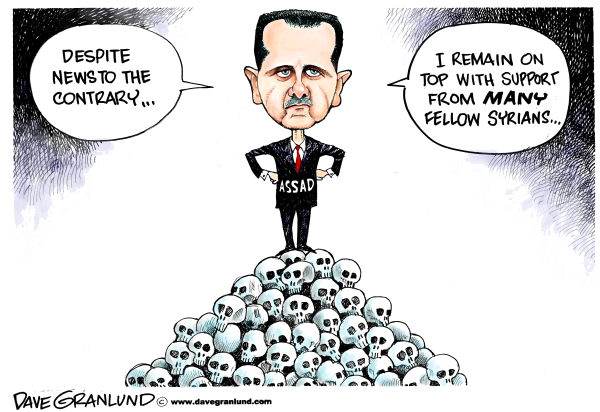Ya Libnan Editorial
The nomination of Tulsi Gabbard as Director of National Intelligence (DNI) has raised significant alarms, highlighting critical concerns about her qualifications, controversial past statements, and the potential risks to U.S. national security. Gabbard’s history of aligning with authoritarian regimes and spreading Russian-backed narratives brings into question her ability to lead critical intelligence agencies like the CIA, FBI, and NSA, institutions tasked with safeguarding America’s interests.
A Troubling Track Record
Gabbard’s defense of Bashar al-Assad, the dictator of Syria, is deeply concerning. In 2017, while serving in Congress, she visited Assad and described him as “not the enemy of the United States,” despite his regime’s well-documented use of chemical weapons on civilians. This statement contradicts U.S. policy and undermines international efforts to hold Assad accountable for war crimes. Her views on Assad are part of a broader pattern of support for authoritarian regimes that do not align with the principles of democracy or human rights, values that should underpin U.S. foreign policy.
Adding to the alarm, Gabbard’s nomination has reignited questions about Assad’s ties to the 2020 Beirut port explosion, one of the largest non-nuclear explosions in history. The catastrophic blast, which killed over 200 people, injured thousands and devastated large swaths of the city, was caused by a massive stockpile of ammonium nitrate. Evidence suggests that this highly explosive material was imported, stored, and safeguarded by Hezbollah, Assad’s powerful ally in Lebanon. Reports indicate that the shipment was intended for use in Assad’s notorious barrel bombs, a brutal weapon used to terrorize Syrian civilians during the civil war.
Gabbard’s history of defending Assad and her lack of acknowledgment of Hezbollah’s role in facilitating such atrocities raises serious questions about her ability to prioritize U.S. interests and condemn the actions of those who pose threats to regional and global stability.
Alignment with Kremlin Narratives
Gabbard’s remarks on the war in Ukraine further fueled skepticism. She suggested that the conflict could have been avoided if NATO had addressed Russia’s “legitimate security concerns,” echoing narratives pushed by the Kremlin. Additionally, her promotion of unfounded claims about U.S.-funded biolabs in Ukraine, widely debunked as Russian disinformation, raised alarm bells across the political spectrum. These positions align her with Putin’s interests, further straining her credibility as a potential leader of U.S. intelligence.

Bipartisan Criticism
The concerns about Gabbard’s qualifications and views are not limited to partisan divides. Democratic Congresswoman Abigail Spanberger, a member of the House Intelligence Committee, criticized Gabbard as “ill-prepared and unqualified” for the DNI role, citing her penchant for spreading conspiracy theories and her troubling associations with leaders like Assad and Putin. Even Republican voices, including Senator Mitt Romney, have condemned Gabbard’s disinformation on Ukraine. These bipartisan criticisms underscore the widespread concern over her ability to lead in a way that aligns with U.S. interests.
A Risk to U.S. National Security?
The DNI position is one of the most vital roles in the U.S. government, responsible for ensuring the reliability and credibility of the nation’s intelligence infrastructure. Gabbard’s past statements and associations suggest she may struggle to remain impartial, especially when it comes to regimes that are hostile to American interests. Her appointment could damage U.S. credibility abroad, particularly with key allies who might perceive a shift in U.S. policy toward appeasement of authoritarian governments.

The potential for leaders sympathetic to Hezbollah or Assad to influence U.S. intelligence policies is particularly alarming given the devastating consequences of Hezbollah’s regional activities, including its alleged role in facilitating the Beirut port disaster of August 2020. Such events highlight the critical importance of intelligence leadership that is resolute in combating threats posed by terror-linked groups and authoritarian regimes.
What’s Next?
The Senate confirmation process promises to be contentious, as lawmakers will be forced to scrutinize Gabbard’s record and determine whether her nomination aligns with U.S. strategic interests. With the stakes higher than ever, her nomination presents a critical challenge for the incoming administration and its commitment to maintaining strong, credible leadership in the intelligence community.
In a time of rising global tensions and challenges to American influence, entrusting someone with Gabbard’s views with the keys to the nation’s intelligence apparatus is a gamble the United States should not take.

